Diarrhoea
Over-the-counter diarrhoea medicine provides effective management for symptoms such as frequent and sudden loose or watery stools. Formulations like loperamide help slow bowel movements, offering relief, while substances like bismuth subsalicylate absorb fluids, aiding in symptom control. Read More…

-
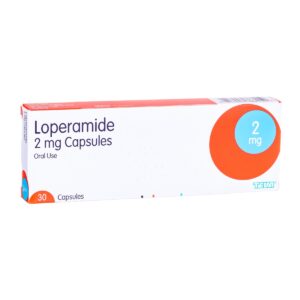
Loperamide (Generic Imodium) Anti-Diarrhoea Capsules
- Fast Acting Relief From Diarrhoea
- Slows Down Bowel Activity
- Active Ingredients: Loperamide Hydrochloride
£2.49 – £5.89 Select options -
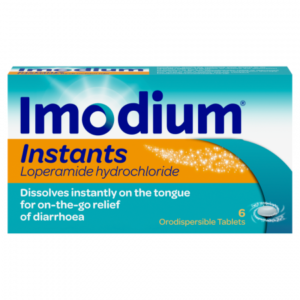
Imodium Instants Orodispersible Tablets – 6 Tablets
- Fast Acting Relief From Diarrhoea
- Active Ingredients: Loperamide Hydrochloride
- Dissolves On The Tongue
£4.79 Select options -
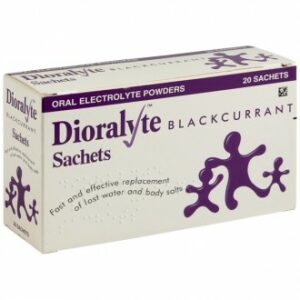
Dioralyte Blackcurrent Oral Electrolyte Powders – 20 Sachets
- Fast Acting Rehydration Treatment
- Active Ingredients: Glucose, Sodium Chloride, Potassium Chloride
- Replaces Lost Fluid And Electrolytes
£13.99 Select options -
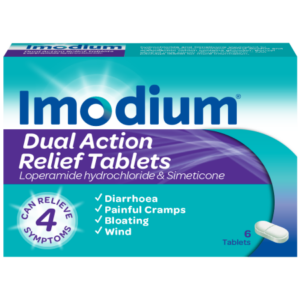
Imodium Dual Action Relief Tablets – 12 Tablets
- For effective diarrhoea relief when you need it
- Soothing formula also relieves cramps, bloating and wind
- Loperamide hydrochloride & Simeticone
£7.99 Add to basket -
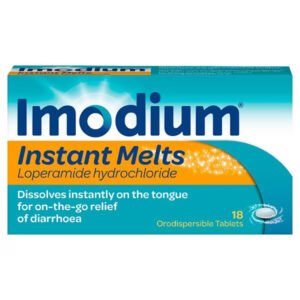
Imodium Instant Melts – 18 Tablets
- Active Ingredient: Loperamide
- Can be Used For IBS Related Diarrhoea
- Buy With Confidence From UK Registered Pharmacy
£9.49 Select options -
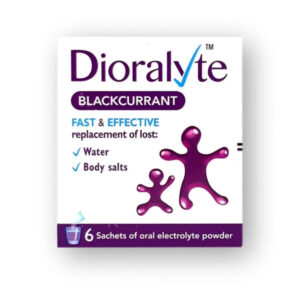
Dioralyte Blackcurrant Oral Electrolyte Powders – 6 Sachets
- Oral rehydration therapy
- Fast & effective replacement of lost water and body salts
- Treatment for acute diarrhoea in infants, children and adults
£4.89 Add to basket -
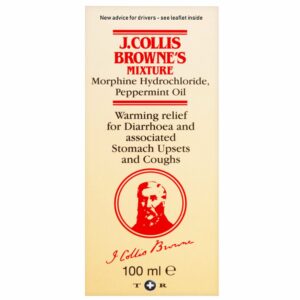
J. Collis Browne’s Mixture 100ml
- Driving licence AND passport ID required to purchase this product
- REFUNDS ARE SUBJECT TO A £5.00 ADMINISTRATION FEE IF ID CAN NOT BE PROVIDED.
- MULTIPLE ORDERS WILL BE SUBJECT TO A £5.00 ADMINISTRATION FEE WITH NO EXCEPTIONS.
£8.79 Select options -
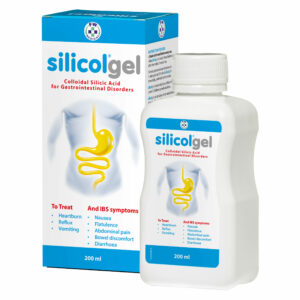
Silicol Gel – 200ml
- Reduces IBS Symptoms
- Removes Toxic Substances From The Stomach
- Effective Relief From Heartburn
£9.99 Add to basket -

Imodium Dual Action Relief Tablets – 6 Tablets
- For effective diarrhoea relief when you need it
- Soothing formula also relieves cramps, bloating and wind
- Loperamide hydrochloride & Simeticone
£4.99 Add to basket -
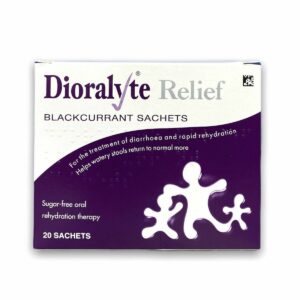
Dioralyte Relief – Blackcurrant (20 Sachets)
- Treatment of diarrhoea and rapid rehydration
- Returns watery stools to normal
- Sugar-free oral therapy
£13.99 Select options -
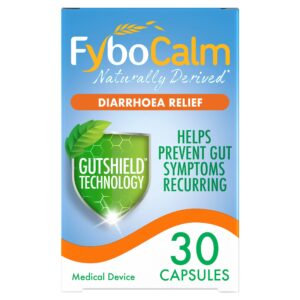
FyboCalm Diarrhoea Relief Capsules – 30 Capsules
- Gutshield Technology
- Helps prevent gut symptoms recurring
- Provides long lasting relief
£14.99 Add to basket
-
About Diarrhoea
Diarrhoea is a common condition characterised by loose, watery stools that occur more frequently than usual. It can result from a variety of causes, including infections by viruses, bacteria, or parasites, and can be exacerbated by medications, food intolerances, and diseases affecting the stomach, small intestine, or colon.
Causes
• Infections: Often caused by consuming contaminated food or water. Viral infections like norovirus or rotavirus, bacterial infections from organisms like E. coli or Salmonella, and parasitic infections are common culprits.
• Food Intolerances and Allergies: For example, lactose intolerance can lead to diarrhoea when dairy products are consumed.
• Medications: Antibiotics and other medications can disrupt the normal flora of the gut or irritate the digestive tract.
• Chronic Digestive Disorders: Conditions such as irritable bowel syndrome (IBS), Crohn’s disease, and ulcerative colitis can cause recurring episodes of diarrhoea. -
Symptoms of Diarrhoea
Diarrhoea typically manifests as loose or watery stools, often occurring more frequently than normal. Common symptoms accompanying diarrhoea include:
• Abdominal Cramps or Pain: This discomfort in the belly area is a frequent complaint.
• Bloating: A feeling of fullness or swelling in the abdomen.
• Urgency: A strong and immediate need to have a bowel movement.
• Nausea: Upset stomach, which may sometimes lead to vomiting.
• Fever: In some cases, especially if the diarrhoea is caused by an infection.In more severe cases, diarrhoea may include worrisome symptoms that require prompt medical attention:
• Blood or Mucus in the Stool: This can indicate a more serious infection or condition.
• Severe Pain: Intense abdominal or rectal pain.
• Dehydration: Signs include dizziness, dry mouth, severe thirst, and little or no urination.Persistent diarrhoea that lasts beyond a few days can signal underlying issues such as irritable bowel syndrome (IBS) or more serious conditions like inflammatory bowel disease (IBD) or infections.
-
Diagnosis
The diagnosis typically involves a detailed medical history, a physical examination, and may include a variety of tests depending on the suspected underlying cause. Here’s a summary of how diarrhoea is diagnosed:
Medical and Family History
Doctors start by gathering detailed information about your symptoms—such as duration, frequency, and appearance of the stools—and any accompanying symptoms. They will also inquire about your diet, medication use, recent travel, and any family history of digestive disorders.
Physical Examination
During the physical exam, your healthcare provider may check for signs of dehydration, listen to sounds in your abdomen using a stethoscope, and palpate your abdomen to detect any tenderness or pain. A digital rectal exam may also be performed to check for abnormalities in the lower gastrointestinal tract.
Diagnostic Tests
Depending on the initial findings, several tests might be recommended:
• Stool Tests: To identify the presence of pathogens like bacteria or parasites, or to check for blood or mucus in the stool.
• Blood Tests: These can help assess general health and check for signs of infection or inflammation.
• Hydrogen Breath Tests: Used to diagnose carbohydrate malabsorption such as lactose intolerance.
• Endoscopic Procedures: Such as a colonoscopy or an upper endoscopy might be used to directly visualise the inside of your gastrointestinal tract and, if necessary, take tissue samples.These tests help in determining the specific cause of diarrhoea, whether it’s due to an infection, a chronic condition like inflammatory bowel disease, or a functional disorder like IBS.
-
Treatment
Over-the-counter (OTC) medications for diarrhoea, such as loperamide and bismuth subsalicylate, can provide relief from symptoms. Loperamide works by slowing down the movement of the gut, which helps decrease the frequency and urgency of bowel movements. This can be especially helpful in cases of acute diarrhoea, where rapid relief is needed. Bismuth subsalicylate can also reduce the number of loose stools and is believed to have some antimicrobial effects as well.
Electrolyte powders or solutions are another OTC option, primarily aimed at preventing or treating dehydration, a common complication of diarrhoea. These products, like Dioralyte , help replenish electrolytes and fluids lost during episodes of diarrhoea.
It’s always important to follow the dosing instructions on the package and to consult with a healthcare professional if symptoms persist, as prolonged diarrhoea can lead to dehydration and other complications.
Here are some highlighted products that we sell:
Loperamide (Generic Imodium) Anti-Diarrhoea Capsules: This medicine offers fast-acting relief by slowing down bowel activity, with loperamide hydrochloride as the active ingredient.
Imodium Instants Orodispersible Tablets: These tablets provide rapid relief and are convenient because they dissolve on the tongue. They contain loperamide hydrochloride.
Dioralyte Blackcurrant Oral Electrolyte Powders: Alongside treating the diarrhoea itself, it’s essential to address dehydration. Dioralyte sachets quickly replace lost fluids and electrolytes, with active ingredients like glucose, sodium chloride, and potassium chloride.
Imodium Dual Action Relief Tablets: For a comprehensive approach to symptoms, these tablets not only help with diarrhoea but also soothe cramps, bloating, and wind, thanks to the combination of loperamide hydrochloride and simethicone.These products work in different ways to address the symptoms of diarrhoea and its side effects, such as dehydration and digestive discomfort.
-
Prevention Strategies
To prevent diarrhoea, consider these steps:
• Hand Hygiene: Wash hands thoroughly with soap, especially after using the restroom and before eating.
• Rotavirus Vaccination: Ensure children get vaccinated for rotavirus.
• Travel Precautions: Be vigilant about food and water safety when travelling.
• Consult Healthcare Providers: Speak with a doctor about preventative antibiotics if visiting areas with high diarrhoea risk.












